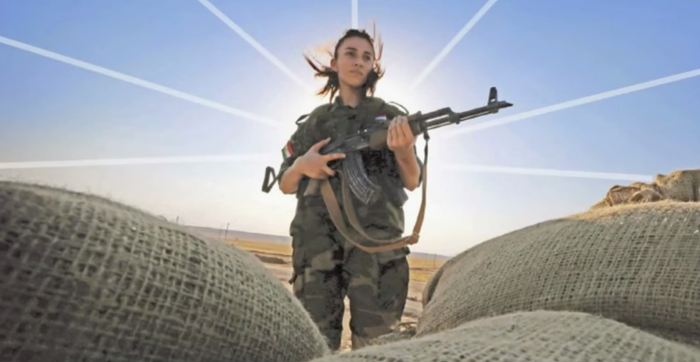
Many countries are now involved in bombing ISIS in Syria and Iraq, with Britain expected to join the aerial bombardment in Syria soon (it’s already involved in Iraq). ISIS clearly do deserve to die, and the barbarism in Paris on 13/11/15 has brought this need into sharp focus for many. However this blog asks if we’re going about it the best way.
One problem is that airstrikes are imprecise – they invariably kill civilians. So France is currently levelling whole Syrian cities based on their intelligence that they are ISIS controlled. A second problem is that they inflame wider regional tensions which really ought to be avoided. As the Muslim world witnesses Western and Russian airpower involved in such acts of destruction, it might lead to a greater sympathy for ISIS who would then come across as the victims. It would be a tragic unintended consequence if the airstrikes led to an overall increase in radical Islam over the months and years to come – the point was to squish it now, not make it worse. Thirdly airstrikes have already exacerbated the ISIS-caused refugee crisis in Europe as ordinary Syrians flee for their safety. Fourthly they can be seen as just a PR gesture to make politicians appear effective to their domestic audiences when really they are furthering chaos. Really the global solidarity expressed after the barbarism in Paris ought to be channeled into something more productive. It seems then, that these problems with airstrikes would tend one to favour the sending in of ground troops. But there are problems with this as well.
Ground troops are not the answer because they too inflame regional tensions. When a superpower such as the US or NATO deploys troops, it still comes across as using a sledgehammer to crack a nut. Tragically any kind of display of might by major powers appears to the Middle East as supremacist and anti-Muslim, as if they were sending a warning that “you could be next”. Thus ground troops, while avoiding some of the problems of airstrikes, might still lead a growth rather than reduction over time of radical Islam.
It seems then we are in a quagmire. Whilst ‘something must definitely be done’, it seems that it cannot be done by foreign states without creating worse problems. Mercifully there is a solution – action can be taken without involving foreign states at all.
The best way to defeat the ISIS menace is for lots of individuals (possibly including members of the armed services acting in a non-official capacity) from aggrieved countries to be allowed to join Kurdish warriors who are already battling them. The Kurds are already located in Iraq and Syria (as well as Turkey and some other countries), and they are proven to be a disciplined fighting force. The Kurds could lead the fight against ISIS with the backing of brave and talented individuals from many other countries operating in a non-state based capacity. It would be a people’s army, as effective as Western ground troops, but without the drawbacks. Indeed the Muslim world, the overwhelming majority of whom hate ISIS, would cheer it. The war could then be over very quickly without future repercussions if done in this way.
So what’s holding this realistic solution back? Sadly some countries regard the PKK, the Kurdistan Worker’s Party who are doing most of the fighting, as a ‘terrorist army’. Therefore anyone who wants to fight alongside them against ISIS can be jailed in certain countries, Britain among them. On 20/11/15, a British court locked up a young woman for wanting to fight with the PKK against ISIS, elevating the letter of the law over moral decency. Polticians’ current reluctance to remove the PKK from their list of proscribed organisations reveals their absence of a sense of solidarity with the victims of the barbarism in Paris that all of their constituents would have been rightly appalled by.
Rather than treating those who want to fight ISIS as heroes and freedom fighters, we treat them as akin to ISIS themselves, which is truly sickening. Indeed Turkey is bombing the PKK right now in Syria (NATO is turning a blind eye). We need to argue with the states that proscribe the PKK who, as well as Britain, France, and the USA, are Australia, Austria, Azerbaijan, Canada, Germany, Iran, Japan, Kazakhstan, Kyrgyzstan, the Netherlands, New Zealand, Spain, Syria, and Turkey, to temporarily lift their bans, just for the duration of this fight with ISIS. Then it could be reconsidered afterwards.
This should not be regarded as a controversial demand. The PKK has never been designated as a terrorist organisation by the UN. Most European Union member states have not individually listed the PKK as a terrorist group. Other major powers such as Russia and China do not regard the PKK as a terrorist organisation either. Furthermore if one looks at the history of the PKK’s relations with Turkey, it is clear that they only took up armed struggle against Turkey when she failed to grant autonomy to over 6 million Kurds living there. So the PKK’s status in some countries’ eyes as a terrorist organisation should be a contentious issue. At the very least, it is imperative the PKK are given leeway for the duration of the war with ISIS. It’s our best hope of a swift victory.